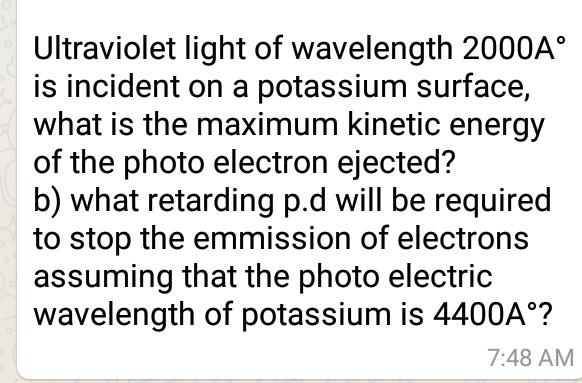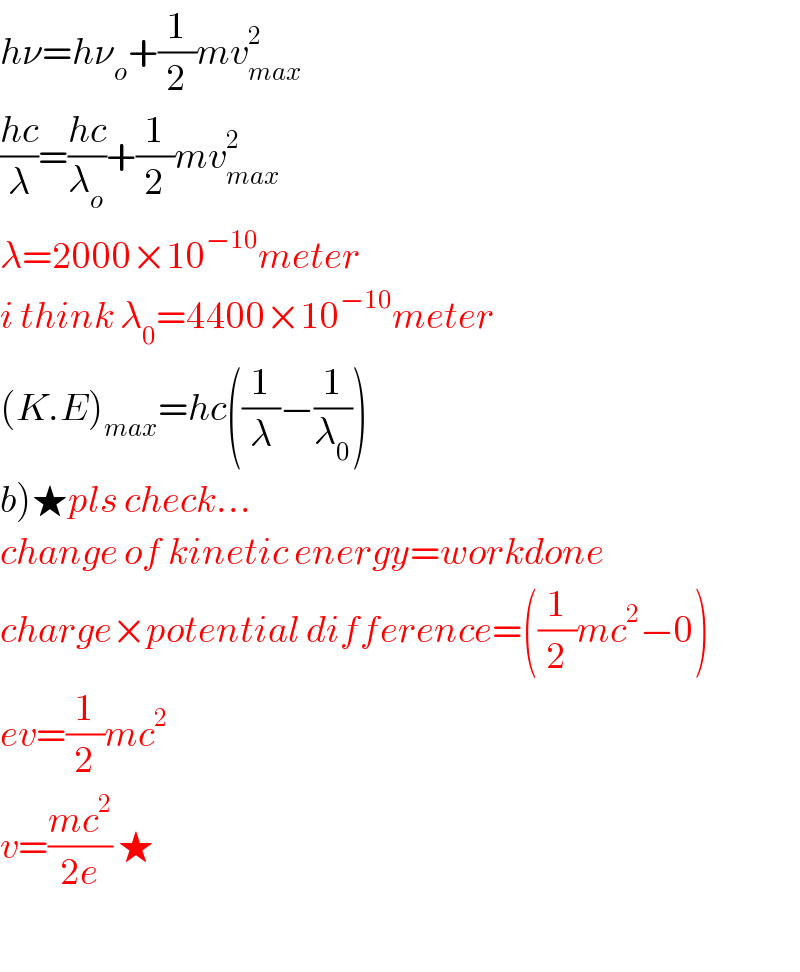Question Number 55748 by necx1 last updated on 03/Mar/19

Commented by necx1 last updated on 03/Mar/19

$${please}\:{help} \\ $$
Answered by tanmay.chaudhury50@gmail.com last updated on 03/Mar/19

$${h}\nu={h}\nu_{{o}} +\frac{\mathrm{1}}{\mathrm{2}}{mv}_{{max}} ^{\mathrm{2}} \\ $$$$\frac{{hc}}{\lambda}=\frac{{hc}}{\lambda_{{o}} }+\frac{\mathrm{1}}{\mathrm{2}}{mv}_{{max}} ^{\mathrm{2}} \\ $$$$\lambda=\mathrm{2000}×\mathrm{10}^{−\mathrm{10}} {meter} \\ $$$${i}\:{think}\:\lambda_{\mathrm{0}} =\mathrm{4400}×\mathrm{10}^{−\mathrm{10}} {meter} \\ $$$$\left({K}.{E}\right)_{{max}} ={hc}\left(\frac{\mathrm{1}}{\lambda}−\frac{\mathrm{1}}{\lambda_{\mathrm{0}} }\right) \\ $$$$\left.{b}\right)\bigstar{pls}\:{check}… \\ $$$${change}\:{of}\:{kinetic}\:{energy}={workdone} \\ $$$${charge}×{potential}\:{difference}=\left(\frac{\mathrm{1}}{\mathrm{2}}{mc}^{\mathrm{2}} −\mathrm{0}\right) \\ $$$${ev}=\frac{\mathrm{1}}{\mathrm{2}}{mc}^{\mathrm{2}} \\ $$$${v}=\frac{{mc}^{\mathrm{2}} }{\mathrm{2}{e}}\:\bigstar \\ $$$$ \\ $$
Commented by necx1 last updated on 03/Mar/19

$${exaxtly}!{Thank}\:{you}\:{so}\:{much} \\ $$
